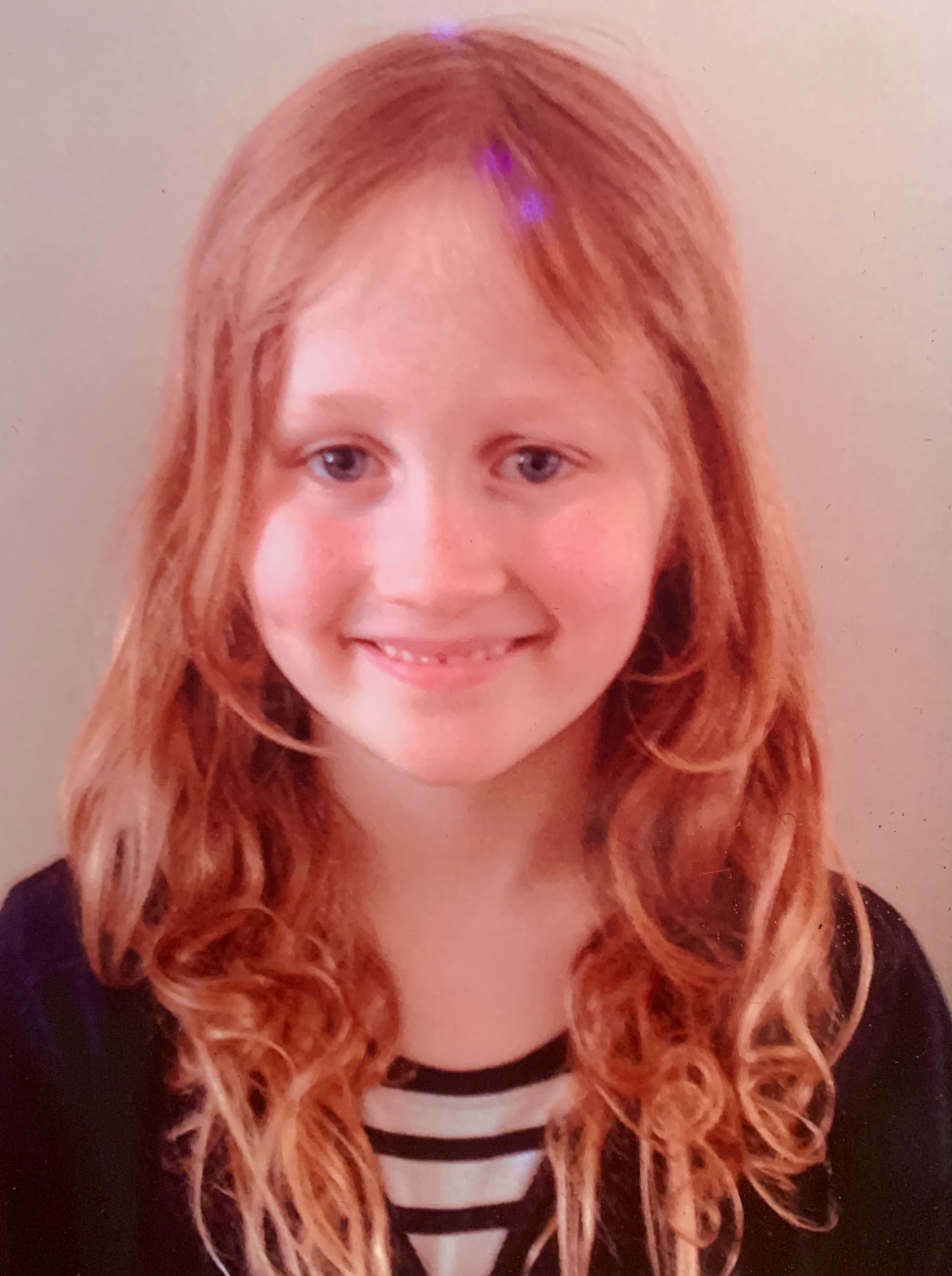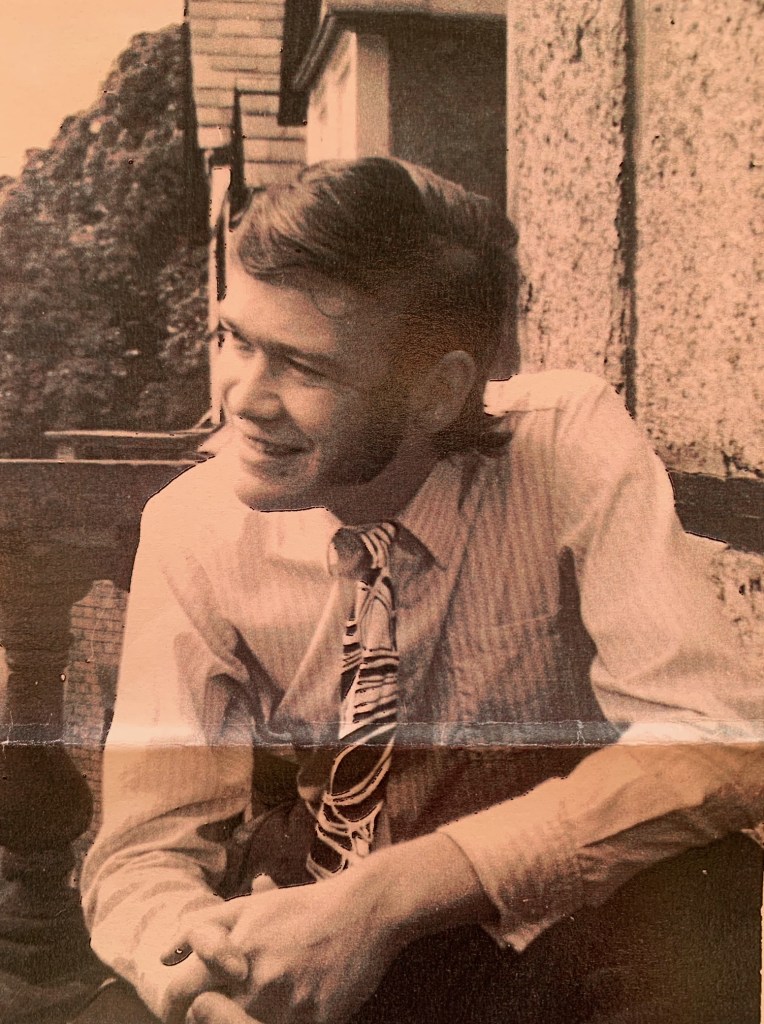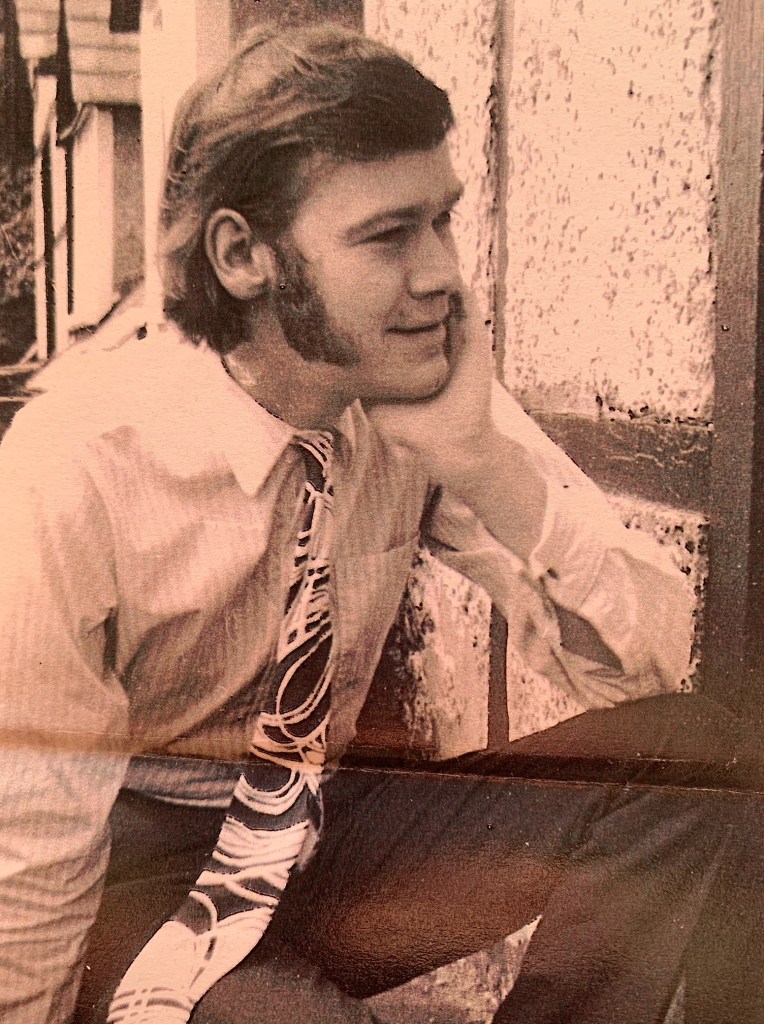In the coming years, I was left in the sole care of Dorothy.
A deeply disturbed young woman, who had absolutely no wish nor inclination to look after me.
Why should she?
My father had put us both in a remote country cottage in Essex, and visited us , reluctantly, every six weeks, while he lived in Hampstead (Fitzjohn’s Avenue), apparently, with his second wife, Sonia. His visits became more and more erratic, and I had no idea where he was living.
When he dared to visit us, there would be horrendous rows -‘scenes’ between him and his discarded and neglected young mistress, who would launch into murderous attacks on him.
She chain-smoked most of the money left for our upkeep, which meant that food was in short supply. Sometimes we’d pull up the floorboards to see if there were any coins there.
I dreaded her running out of cigarettes, which calmed her. Without them, I was in big trouble. Then, she would rage at me, push me around. Lock me in cupboards. I would count how many cigarettes she had left.
Knowing, terrified, that her temper would be ‘out of control’ without them.
I began to know what ‘food insecurity’ means. I never knew if food would be provided. She’d cook egg and fried potatoes, or occasionally, or a pork chop would be thrown in front of me, usually in sullen silence. There was often no ‘dinner money’ for me for school meals, so I’d have to walk home at lunchtime. To eat or usually not to eat lunch. I was permanently hungry.
I survived because a kind teacher, taking pity on me , would invite me to her home, once a week, for a meal, and some extra 11 plus tuition.
For once, I’d eat at a nicely laid table, with a crisp, clean tablecloth, in a pretty dining room, overlooking their pretty garden. An oasis of peace.
I am utterly grateful to Wendy and Peter Dawson, for feeding me.
For the first time in my life, I enjoyed delicious salads – and peanuts!
There were also a couple – Sam and Ada – who were our nearest neighbours. About half a mile away. Sam, was a farm labourer, and Ada, his disabled wife. They were childless. Miraculously, they were concerned about me. And, every day, on my way home from school, I’d call on them, and they’d give me ‘tea’. Fresh home-made bread, butter and Tiptree jam. And fruit! They once brought me a pomegranate.
I’ve loved that fruit ever since.
I’d scrump a lot: apples and pears. And I remember making myself pear sandwiches with some sprinkled sugar on top. Delicious.
I’d listen to Sam and Ada talking about how worried they were about my welfare. I had so few clothes. In summer, one pair of shorts, a sleeveless top. Open-toed sandals. In winter, brown cord trousers and a grey, knitted cardigan.
There were holes in my shoes. I would put newspaper in them
I was a wild, feral, unkempt child.
Every day, I’d get up early to go to school. A mile or so walk.
Dot, as we called her ,didn’t get out of bed until midday, so I never saw her.
My little country primary school was my refuge. A place of safety.
Here I’d get a small bottle of free milk, and a lunch, if I was lucky.
To this day, I can still remember the names and faces of all those lovely country kids in my class.
They were my friends. Family.
We did exciting things like reading good poetry aloud, acting in plays. I always seemed to get the leading parts: Snow White, Aladdin ( bit of cross-dressing there), the Virgin Mary in the Nativity. I was an articulate kid. I read non-stop. Ransome ( ‘Swallows & Amazons’); ‘Anne of Green Gables’ – all of L.M. Montgomery. ‘Black Beauty’, ‘Little Women’.’Just William’. ‘The Borrowers’.These were some of my favourite books.
More friends.
And it was into the vibrant atmosphere of this happy, little village school, that I began to write poetry. My first attempts, which I illustrated with little drawings were entitled ‘Panorama’, and ‘April’,and I then wrote a short story called ‘The Rectory Children’. I still have these fledgling literary offerings. Juvenilia.
I was obviously a country child , as the opening lines of ‘April’ attest:
‘April is the child of spring/she reigns for thirty days/She brings the daffodils on hillocks green/the daisies that spring on grass-edged ways’.
And the opening stanza of ‘Panorama’:
‘The grass is wet beneath my feet/And a warm wind ruffles my hair/I sit on the hill, and think and think of a life without a care’.
It’s melancholic in tone, and next to it is a picture I drew of myself in my uniform of shorts, top and open-toed sandals, and my short- cropped boyish hair.
The embryonic writer had arrived. And as Doris Lessing once observed ‘the best training for any writer is an unhappy childhood’.
The poems aren’t dated, but I was aged between 7-10 yrs old when they were written.
Another fragment from this time is that I won first prize in an essay-writing competition, aged 10, given by Cadbury’s. I have no idea what the subject was, but my father kept the certificate for years, and I was to develop a desire to appear in print, especially as the prize was several bars of chocolate! Again, I owe so much to my teacher, Mrs Dawson, who probably entered me into the competition, and inspired my passion for poetry, by reading the glorious poems of John Masefield to us.
Out of school, we climbed haystacks, looked at moorhen nests and the little chicks, rode ponies ( without safety helmets in those days).
My pony was called Samba. I loved him.
At weekends, and school holidays, ever reluctant not to be at the cottage, I’d hang around the homes of these kids, cadging food, watching how ‘normal’ families worked. Seeing what mothers did.
Although I have absolutely no memory of a single birthday or Christmas after the age of five, I do recall being given a rusty old second-hand bike.
And a puppy!
‘Windsor’ was a glorious golden cocker spaniel – the joy of my life!
My buddy and companion. I’d take him for long walks in the fields behind the cottage, watching him chase rabbits.
But twice we nearly lost him. Firstly, my father ‘forgot’ to have him vaccinated, and, as a tiny puppy, he got distemper and hardpad.
I will never forget the fear ,terror and anguish I felt at seeing this little scrap fighting for his life. Desperately ill. Miraculously, he pulled through. Sheer love and my desperation might have helped. He was all I had.
Another time, he escaped out of our cottage enclave onto the road, and was knocked down by a car. I will never forgot the howls and screams of pain he was in. Someone, negligently, hadn’t closed the gate to the place.
I froze in complete terror.
He was paralysed with a damaged spine. His back legs didn’t work.
He dragged his poor etiolated legs behind him,wrapped in bandages. There was talk of ‘putting him down’. I absolutely refused to let them do this, and promised I’d massage his legs, and pinch his paws back into life. It took me weeks of therapy doing this. But there was a tiny spark in his legs, and one day, again ,miraculously, he stood up very shakily, and walked. His muscles were always very wasted. But he walked , with a stagger, for the rest of his life.
There was another sad outcome of having my beloved puppy. We had acquired him from a local kennel. And the owner, a Mr Brown, seeing how much I loved puppies, invited me to come round, after school, to help play with and socialise them. I was thrilled to bits. This became an almost daily occurrence. But, there was a dark side to this. After my time spent with the little animals, Mr Brown would take me into the aptly-named ‘stripping shed’, take all my clothes off, and place me naked on a table, where he would poke around my genitals, and masturbate.
Once, he brought a young boy in, and the masturbated together.
I was transfixed with fear.
Then an extraordinary thing happened. I returned to the cottage, late as usual, to find my Scottish grandmother, Ada, there. She had made the journey all the way from Glasgow, ( her only time) to visit her only grandchild. Naturally, she asked me why I was so late, and where I had been. And, in my innocence, I told her exactly what was happening. Never have I seen such an outburst.
She grabbed the phone, and called the police immediately. The next thing there were tons ( to me) of people in the cottage. Questioning me.
The outcome was a court appearance. I had to testify. In those days, children were grilled by barristers in court. I remember being scared to death, as Mr Brown was in court. It was such luck,however, that I was rescued by Ada. It turned out that Brown was raping and buggering a thirteen year old girl and her brother ( they were twins) , and that he was a recidivist paedophile. He was sent to Broadmoor.
One thing I remember about the trial was the aggressive questioning of the defence barrister, and how I managed to demolish his arguments.
And, ever fashion conscious about my few clothes, I had been dressed in a sweet little kilt and a canary yellow jumper for the trial. I must’ve had some new shoes, too. They all must’ve been bought especially for this court appearance.
Regarding clothes, as a five year old, plus, living in Germany, I’d had some very pretty silk dresses, which I loved. Silk. Smocked.I had also had long hair .Plaited, My father kept one of my plaits. I still have it.
But under Dot’s regime, my hair was always chopped short, like a boy’s.
I dreaded having my hair cut like this, and would always cry. And, again,
Dot’s mocking eyes would flash with glee when she saw my distress.
Result. To this day, I have a horror of having my hair cut.
Life at the cottage started to get darker.
I got very ill with mumps. Suddenly, my father appeared, with his young wife, Sonia It was the only time I met her. Their eyes seemed filled with fear, as they surrounded my bed. Dot made me soft boiled egg chopped up with white bread to eat.
It was disgusting.
Worse was to come. Poor Dorothy became pregnant Her rages and smoking got worse. She never left the cottage. No hospital visits, or check-ups. She just hid away in shame, poor girl.
The tragic baby boy – Graham – was stillborn.
I felt sad but also relieved that he would be spared a terrible life living with us. And I , at ten years old, was left to care for this demented, bleeding , crying , leaking woman. I witnessed her swollen breasts, dripping milk. The blood soaked sanitary pads everywhere.
She would cling to me, weeping copiously. Such grief. But , sadly, I felt nothing.
My heart was a stone.
It was also the only time that I was mercilessly bullied at school, by a girl called Geraldine. I will never forget her. She taunted me for my ‘irregular’ and scandalous home life. But I fought back. God knows how I found the strength.
Understandably, Dorothy was now almost on the verge of psychotic madness by now. My father appeared less and less.
The school holidays were looming, and I dreaded the endless days and nights that lay ahead.
One day, completely ‘out of the blue’ my mother turned up. She stayed a night at the cottage, completely ignored me, and had a blazing row with Dot. The next morning she rose at the crack of dawn to get a train to London to her work. I explained my plight and fear at being left alone to deal with Dot’s moods, and begged her to take me with her. She refused. And with her characteristic annoyance she told me to ‘leave her alone’,as she was in a hurry to leave.
By now, I was desperate. Dressed in my uniform of shorts, top and open-toed sandals, I managed to grab a green raincoat, and jumped over the garden wall onto the soft, wet grass. I didn’t go by the gate, as I feared the click would wake Dot. It was half past five in the morning.
I had decided to run away.
Firstly I walked the 4 or so miles to Billericay. There, I knew a family called The Wheatley’s. Mum, Dad, two boys – Chris and Nick.
I stayed there until around 6pm, when it was starting to get a bit darker, but not much – it was summer, when the mother urged me to walk back home. In those days, kids walked everywhere. There were few buses, and cars were a luxury. I never saw a country bus, as far as I remember.
Of course, I was never going to do this, so I just followed the road to London. By the time the police picked me up, around 9pm, it was already dark, and I must have walked for miles. I was exhausted. And was ferried swiftly to the nearest police station. I have no idea where it was, but Dot must’ve raised the alarm ( we had a telephone), when I didn’t return home.
A lovely policeman, Detective Inspector ‘Dusty’ Smith (I’ll never forget his kind, concerned face) interviewed me with great sensitivity and kindness. Abused children are very impressed by gentle people. They aren’t used to them. About an hour or two later, my ashen-faced father arrrived from London. He took me away. Not to the cottage, but to a local hotel, and then on to Jersey for a holiday.
I never returned to Milestone Cottage.



